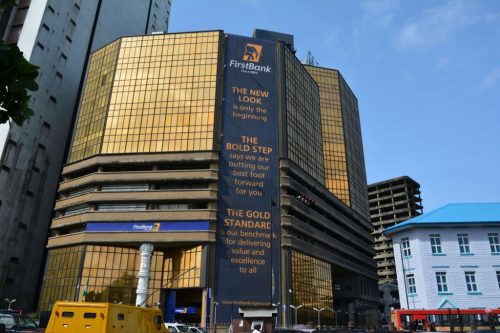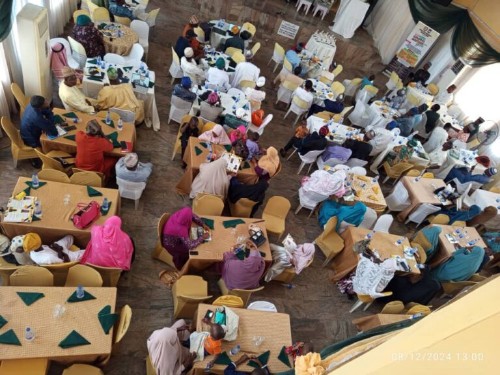In First Bank of Nigeria Limited, virtually all the indices are looking bright. From a stellar performance in its last year and first quarter of 2022 operations to the unleashing of its robust digital banking solutions in its operations, analysts say its current management deserves accolades for preparing the bank for the challenges and changing needs in the emerging dispensation in the Nigerian banking industry.
As competition mounts in the ever-changing Nigerian banking landscape, analysts said the future of the industry will be determined by the speed and readiness of the operators to navigate their institutions to meet the changing dynamics in the taste and needs of consumers of banking products and services.
This is because as the Nigerian economy undergoes different levels of transformation and challenges evident in the shrinkage of the citizens’ purchasing power, and the narrowing of their choices, bank customers, as well as investors in the banking stocks, will naturally gravitate to any of the banks which has what it takes to meet their needs.
In the consideration of the above-painted scenario, analysts believe the cap fits First Bank of Nigeria Limited, the banking arm of the FBNHoldings, perfectly.
In the last few weeks, FirstBank has remained in the news as a result of its impressive performance in its 2001 full-year operation, a feat which it effortlessly repeated in the first-quarter results.
And like an institution that is committed to staying put at the top of the ladder, the bank is sticking to its commitment to be the darling of Nigerian bank customers through its resolve to leverage its digital banking solutions by moving from a dependence on branches for doing business to digital banking for excellent performance.
The result of this bold move is the unprecedented surge in the number of customer accounts from 10 million to 36 million in a few years.
Shift to Digital Architecture:
FirstBank had over the years taken advantage of its geographical footprints. A report by the Lagos-based research firm, Financial Derivatives Company Limited, noted that at one point in time, FirstBank had over 25% of total bank branches in Nigeria. Leveraging on the economies of scale, today, First Bank has made a mental shift from relying on its branches for doing business to a greater emphasis on its digital architecture. In the digital space, First Bank is not only a fierce competitor but a winning institution.
There is no doubt that the Nigerian oldest bank is well-positioned to deepen its penetration in the information technology space through its wide branch network (deposit and loan portfolio of N6.13trillion and N4.03 trillion respectively).
With its e-banking products and services, customers can pay bills, send/receive money, monitor every transaction on their account, make cashless purchases online or in person, and much more. All these can be done on an internet-enabled mobile phone, PC, or tablet, from wherever you are in the world.
The FDC report explained that despite the intense competition faced by Nigerian banks from fintech and telecommunication operators, First Bank of Nigeria Limited remains competitive in the digital banking space with increased customer acquisition from 10 million to 36 million in a few years. Also, the group has a robust retail banking franchise; comprising over 3,000 configured terminals and over 15,000 points of sale (POS) terminals, an agency banking network, as well an internet and mobile banking platform.
Banking on Well-structured Management:
Analysts are also of the opinion that the story about the impressive performance of First Bank, especially in the recent time cannot be complete without a chapter on the unique style of the current management which has been able to navigate the bank towards the path of sustained profitability and acceptance by the banking community.
For instance, analysts from FDC maintained that “The era of an experienced and well-structured management team signifies a continued restructuring of the bank’s operations and the gigantic return to profitability of a previously crippling giant.”
The research firm noted that the bank’s international presence gives it an edge and serves as a buffer against currency weakness, political challenges, and macroeconomic vulnerabilities.
Today, the reality is that the bank which was formerly plagued with bad credit decisions, significant non-performing loans, and poor corporate governance practices has taken drastic steps to tackle these worrisome issues and re-establish itself as a formidable force in the Nigerian banking space.
This new identity can be tied to a restructuring exercise that improved corporate governance, asset quality, and shareholders’ value.
Season of Stellar Performance
Impressively, the bank sustained this positive performance by recording a 32% increase in gross earnings to N180bn in Q1’22 from N136.6bn in Q1’21. Profit after tax was up 108% to N32.4billion (Q1’22) relative to N15.6 billion (Q1’21).
This stellar performance is attributable to a robust loan portfolio, effective cost structure, and increased digital services.
As a result of First Bank’s restructuring exercise, the bank reported a huge sum of N141 billion as loan recovery from previously written-off Atlantic Energy Ltd loan in 2021. This exercise bolstered a 100% bottom-line growth in the period under review.
In the period, FirstBank Limited recorded gross earnings of N170.4 billion, up by 33 percent as against N128.1billion in the previous year. The bank’s net interest income was put at N72.9 billion, a 42.1 percent from N51.3 billion generated in the same period of 2021, while non-interest income was N58.8 billion, up by 21.7 percent from the 2021 figure.
To show the bank was in a serious business of lending, its customers’ loans and advances (net) totaled N2.999 trillion, up by 5.8 percent, year-to-date as of December 2021, which was put at N2.835 trillion, while customers’ deposits were N5.9 trillion, as against N5.6 trillion in the first quarter of 2021, a 5.4 percent increase.
In a ranking conducted by Nairametrics for instance, FirstBank ranked number one among banks reviewed as far as cost to income ratio was concerned. The bank recorded the highest decline in its cost-to-income ratio in Q1 2022, dropping from 79.5% recorded in Q1 2021 to 67.03% in the review period.
The cost-to-income ratio is a key financial metric, which shows a company’s costs as a proportion of its income. It helps to give investors a clear view of how efficiently a bank is being run. Specifically, it shows how much input the bank requires to generate N1 of output.
Notably, the lower this ratio, the more profitable, productive, and competitive the bank will be. Here are the banks with the lowest cost-to-income ratio.
Commitment to Greater Profitability:
The Chief Executive Officer of the bank, Dr. Adesola Adeduntan, expressed the resolve of the management of the bank to use the current good performance to make its drive for profitability a permanent thing. He said, “At FirstBank, we have historically been interwoven with the fabric of this nation with a full-service commercial banking offering catering to every segment of the economy. We believe we are now in a good position to translate this unique revenue-generating potential into improved bottom-line performance.
“Our first-quarter results demonstrate that we have commenced our journey of Quantum Profitability Leap in earnest with profit before tax doubling to N34.1 billion as the Bank begins to reap the dividends of the successful restructuring of its balance sheet, revamped risk management, robust technology, and innovative service offerings.”
Adeduntan stressed the determination of the management of the bank to explore the potential of FirstBank’s large network in consolidating the current impressive runs.
“Looking ahead, we will continue to maximise all opportunities presented by our large network, and support our customers with innovative value-adding solutions through these uncertain times while investing in strengthening our digital banking offerings to deliver a better customer experience.”
Recognised Brand.
Interestingly, these huge investments in digital technology are not going unnoticed by the industry’s observers. And in 2022 alone, FirstBank has won two awards: Best Bank in Nigeria 2022 and Best Banking Digital Transformation Nigeria at the International Investor Awards 2022, a print and online publication.
The organiser explained that the bank was recognised with the Best Bank in Nigeria 2022 award for its leadership role in promoting financial inclusion in Nigeria which has been integral to improving lives and stimulating businesses of individuals across the country.
Also, the Best Bank in Digital Transformation was awarded to FirstBank in recognition of its continued efforts at reinventing its digital banking channels which have been central to reinforcing the Bank’s leading role in promoting a cashless society in the country whilst putting customers at an advantage in enjoying a secured and seamless digital banking experiences. The Bank’s digital banking channels include; its recently unveiled fully automated branch (FirstBank Digital Experience Centre), *894# USSD banking, FirstMobile, First online, and WhatsApp banking amongst others.
With over 750 business locations and over 170,000 Banking Agents spread across 99% of the 774 Local Government Areas in Nigeria, FirstBank provides a comprehensive range of retail and corporate financial services to serve its over 30 million customers. The Bank has an international presence through its subsidiaries, FBNBank (UK) Limited in London and Paris, FBNBank in the Republic of Congo, Ghana, The Gambia, Guinea, Sierra Leone, and Senegal, as well as a Representative Office in Beijing.

 BIG STORY4 days ago
BIG STORY4 days ago
 BIG STORY5 days ago
BIG STORY5 days ago
 BIG STORY2 days ago
BIG STORY2 days ago
 BIG STORY3 days ago
BIG STORY3 days ago
 BIG STORY4 days ago
BIG STORY4 days ago
 BIG STORY3 days ago
BIG STORY3 days ago
 BIG STORY4 days ago
BIG STORY4 days ago
 BIG STORY3 days ago
BIG STORY3 days ago
























